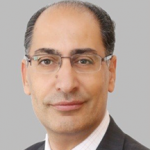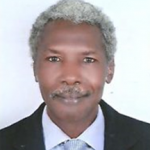Stabilization and Adjustment: Towards Inclusive and Sustainable Policies in MENA
In some ways, the economic and financial situations in several MENA countries resemble those that prevailed in the late 1980s and early 1990s. Back then, structural adjustment programs managed to gradually reduce macro-imbalances, but the forced rollback of the state led to a worsening of state services, halting social mobility. At the same time, the economy was only liberalized in a selective manner, resulting in the development of a form of capitalism with limited competition and innovation, which did not manage to generate sufficient inclusive growth.
How to address the current dual pressures of unsustainable macro and weak growth structure; is now again a central question. Lessons from the 1980s should help develop a more sustainable response in the 2020s. The challenges are in some ways more difficult now – populations have grown larger, export-led growth is more challenging, the climate imperative has become pressing, and the relatively high level of social mobilization complicates policy choices. Fiscal retrenchment risks inflaming the street if it does not, in parallel, create new hopes for a better future. The economies also have a prevalent informal sector that absorbs a large share of the labor force which is out of the social protection network and extremely vulnerable to shocks.
But there are also positive developments since the 1980s. Social mobilization has empowered youth groups to have more voice and agency, a gender revolution has brought new voices to the national debates and new actors in the labor force, the technological revolution has unleashed powerful tools for productivity improvement as well as social organization, the private sector has taken root, and a greener future offers new source of sustainable growth.
The project investigates how to create a path of adjustment and growth, in which governments, civil society, the private sector, and external partners can progressively start sharing a more hopeful narrative of cooperation around a common long-term vision. Is it possible to bring in new accountability tools that can help build sufficient trust to create a momentum towards a virtuous path of inclusive growth, improved institutions, and falling inequality?
The overall objective of the project is to develop macro-economic scenarios with improved external and internal balances, and a program of structural reforms that can foster sustainable and inclusive growth paths, in Egypt, Lebanon, Tunisia, Morocco, Sudan and Jordan. The project is co-directed by a team from ERF and from FDL, and it relies on a technical secretariat.
The specific objectives of the project are as follows:
1. Produce evidence-based knowledge on the public policies that can address the trilemma of austerity, structural change, and social discontent, in order to build a better and greener future for all, including women and youth, and with a special attention to vulnerable groups.
2. Promote informed debates with policy makers (including Ministries of Finance, Planning, Social Protection), the private sector, and civil society on feasible policy and institutional innovations for inclusion and improvement of citizens’ welfare.
3. Support learning across regions that face common challenges, including with countries that can propose innovations and best practices that can be adapted to the local contexts, and present locally generated evidence to global forums.
The project has two main (sequential) components, one that focuses on cross cutting issues that matter in all the 6 countries and lessons learned from other regions/countries, and one that is country focused, zooming in on the country specificities and relevant policy implications.

Ishac Diwan
Director of Research, Finance for Development Lab, Paris School of Economics

Abla Abdel-Latif
Executive Director and Director of Research, Egyptian Center for Economic Studies

Leila Baghdadi
Senior Economist, MENA Chief Economist Office, World Bank

Mustapha Nabli
North Africa Bureau of Economic Studies (NABES)

Karim El Aynaoui
Executive Vice President of Mohammed VI Polytechnic University and Dean of its Humanities, Economics and Social Sciences Cluster

Moez Labidi
Senior Advisor to the Arab Planning Institute in Kuwait, and a Professor of Economics at the University of Monastir, Tunisia

Ibrahim Saif
CEO, Jordan Strategy Forum

Zafiris Tzannatos
Senior Fellow, Jordan Strategy Forum, Amman and Lebanese Center for Policy Studies, Beirut

Magdi Amin
Managing Partner, African Renaissance Partners

Alzaki Alhelo
PhD, Tufts University

Ibrahim Elbadawi
Development Studies & Research Forum, Dubai

Kabbashi Suliman
University of Khartoum
Embarking on a Path of Renewal: A Joint ERF/FDL Report by the Commission on Stabilization and Growth in the Middle East and North Africa
Post-Covid-19, the challenge of adjusting to high fuel and food prices, and to rising global interest rates, is... Read More
Oct 17, 2022
ERF 29th Annual Conference: The Future of MENA Development Path: Risks and Opportunities in an Emerging World Order
While the Middle East and North Africa (MENA) region suffers from several structural characteristics related to the... Read More
May 04, 2023
Growing Out of Debt: Perspectives from Developing Countries Around the World
Countries’ public debt difficulties are partly due to the series of adverse shocks hitting the global economy –... Read More
Jul 04, 2023
Embarking on a Path of Renewal: MENA Commission on Stabilization and Growth
Main Recommendations In the chaotic global post-COVID-19 economy, with the ongoing war in Ukraine, the challenge of adjusting... Read More
Lebanon at Risk – The Uncertain Road to a New Growth Path
In a nutshell The deep reason behind the Lebanese financial crisis is a currency peg maintained for too... Read More
Lebanon at Risk: The Uncertain Road from A Debt Overhang to A New Growth Path
This paper provides an account of the 2019 financial crisis in Lebanon. It then analyzes a series of... Read More
Assessing the Sustainability of Jordan’s Public Debt: The Importance of Reviving the Private Sector and Improving Social Outcomes
This paper examines debt sustainability in Jordan. First, it notes Jordan’s economic trajectory, which has been characterized by... Read More
Fiscal Policy, Private Sector Development, and Social Outcomes in an Indebted Arab Country: Balancing Austerity with Pro-Growth Policies in Jordan
In a nutshell Jordan’s economic trajectory has been characterized by long stop-go cycles. Real GDP per capita peaked... Read More
Public Debt, Growth, and Stabilization in Tunisia: A New Narrative for A Structural Reform Agenda
This paper assesses debt sustainability in Tunisia using the Debt Sustainability Analysis (DSA). We construct three hypothetical scenarios... Read More
Debt and Stabilization in Tunisia: Building Resilience and Avoiding the Austerity Trap
In a nutshell Tunisia has been facing major disequilibria in its public finances. To stabilize its debt and... Read More
Post-Conflict Reconstruction, Stabilization and Growth Agenda for Sudan
Sudan is currently embroiled in high-intensity, catastrophic, and factional military warfare, which is a culmination of an acrimonious... Read More
Post-conflict Reconstruction, Stabilization and Growth Agenda for Sudan
In a nutshell Main Reasons: for a collapsing Sudanese economy in the last 30 years: Sudan is... Read More
Morocco — Beyond Debt: Sustainable Pathways to Higher Growth
Like many developing countries, Morocco faced a significant increase in public debt following the COVID-19 pandemic. In 2022,... Read More
Morocco — Beyond Debt: Sustainable Pathways to Higher Growth
In a nutshell A rising debt scenario poses significant dangers to the Moroccan economy’s long-term stability. This materializes... Read More
Stabilization and Adjustment in MENA: The Case of Egypt
While it is true that the shaky current global economic situation – due to the Russia-Ukraine war, the... Read More



